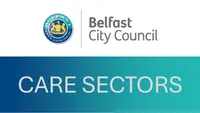
Health & Social Care: Principles and Values
Available from multiple providers
Earner of this badge have demonstrated skills and knowledge at QCF Level 3 in Principles and Values. This theme has provided earners with the understanding, knowledge and skills required to work to the values and principles in health and social care within the boundaries of their own role and responsibilities. It has also provided an understanding of relevant legislation, guidelines and standards and the importance of working in an inclusive way.
Demonstrate Career Development Commitment Communication Problem Solving Resilience Teamwork Time Management Transferable Skills Health And Social Care Informed Consent Influencing Skills Incident ReportingCriteria
By application, please contact the provider for more information
Earner understands the importance of consent when providing care and support. Earner is able to articulate the legislation associated with informed consent and is also able to demonstrate knowledge around factors that may influence an individuals ability to give consent. Earner has also read and fully understands their organisations policies and procedures relating to consent.
Earner is able to demonstrate knowledge around person centred working. The earner has knowledge of the key values and understands the importance of these values underpinning all aspects of their work in supporting and caring for other. The earner is able to demonstrate their ability to work in a person centred way by gaining information about the people the support such as the individual’s history, preferences, wishes and needs. They are also able to work in complex and sensitive situations.
Earner is able to articulate what having a duty of care means within their role and provide examples of how this contributes to the safeguarding and protection of individuals within their care. The earner is aware of and able to discuss potential conflicts which may arise between their duty of care and an individuals rights, as well as being able to confidently risk assess any situations that arise, requesting additional support where required.
Earner is aware of how positive risk taking is a part of everyday life, and is able to professionally support those in their care to make informed choices about these risks in a person centred way, understanding that this is a vital part of their role in supporting individuals to gain confidence, develop new skills and take an active part within their communities. The earner is also aware of and about to take action on any risk/incident reporting within their organisation.
Earner is able to articulate the meanings of active participation, collaboration and wellbeing, as well as demonstrate knowledge about how these components promote independence for those they support. Earner has demonstrated the ability to work in a way that promotes a supportive environment where wellbeing, reduced barriers and the encouragement of active participation and collaboration are central to their role.
Earner consistently demonstrates the ability to work in a way where individuals choices and rights are supported. Earner is aware that a practitioners views, opinions and preferences should not impact or influence an individuals choice, and is able to reflect on the impact of supporting an individual to make their own choices. Earner also has sound knowledge of how to describe, and if necessary question, the choices that have been made on an individuals behalf.
Earner is able to define and demonstrate knowledge on different types of abuse. Earner is also able to articulate the signs and symptoms of each type of abuse, as well as explain factors that may contribute to an individual being at increased risk or in need of protection. Through training and assessment the earner is also able to identify ways in which the risk and likelihood of abuse can be reduced.
Earner is able to articulate the processes and procedures that should be followed in the event of suspicions of abuse or an allegation of abuse is raised. This includes evidence and records that should be kept in line with their organisations policies, as well as an understanding of what whistleblowing is.
Earner is able to confidently articulate the processes and procedures that are in place on both a national and local scale that relate to safeguarding and protection from abuse. Earner is also able to demonstrate knowledge of the roles of different local agencies in safeguarding individuals, as well as how serious case reviews can support the improvement of service.
Earner is able to identify and describe potential unsafe practices including poor working practices, resource difficulties and operational difficulties. Earner is also able to demonstrate knowledge on the actions to take should they identify unsafe practices, as well as the recording and reporting processes for unsafe practices within their own workplace.
Earner is able to demonstrate knowledge of equality, diversity, inclusion and discrimination. Earner is also able to demonstrate an inclusive working style that promotes both equality and inclusion through respecting and valuing an individuals views, opinions and beliefs, as well as challenging discrimination. Earner also has sound knowledge of relevant policies and legislation that relate to equality, diversity, inclusion and discrimination.
Earner has passed all assessments within this unit to a satisfactory/pass level.
Standards
Earn this badge
This badge is part of this pathway:
-
Belfast City Hall, Donegall Square North, Belfast, County Antrim, United Kingdom, BT1 5GS
More Information
www.belfastcity.gov.uk
Issued by
 BCC: Care
BCC: Care
 Belfast City Council
Belfast City Council
Embed Badge
Show:
Click to copy the code. Paste this into your website builder:
Generating certificate...
This might take up to a minute






